|
Why do we write? Well, for the same reason that we read: we believe in stories. My story started cooking in my head long ago, but I never had the will to do anything about it—until someone believed in me. A pinch of belief mixed with an ounce of determination (and, most notably, eight million heinous drafts) can produce a book.
It all comes back to the gap in my bookshelf. A slit between my books judged me every day, grumbling, “Why haven’t you filled me yet?” My excuse typically had something to do with time. I never seemed to have enough of it. To any writer struggling to put words on paper, time does exist; you only have to grab it when it finds you. So, about that bookshelf gap…. It demanded that I fill it with the story I’d always wanted to read, the story no other book could quench. This story of mine revolved around a girl whose name shifted and bounced, whose personality wavered as I grew. Her authenticity, however, remained. I often took issue with the YA protagonists of my youth—too bland, too faultless, too accepting of the mantle thrust upon them, too hardcore, or too “Why me?” My own brand of perfect protagonist floated in the “Just hang out there until I say you can leave” part of my brain. This protagonist struggled to jump right into the “conquering hero” mold; she could be cringe-worthily cheesy and awkward; she had faults that she tried ignoring; she got scared when the time to be heroic came; and, she was human. By that I mean ordinary, flawed, and most of the time unsure whether or not any of her efforts would make an impact. This protagonist floated in and out of the ideas my brain conjured. One day, she found her story and stayed put. Take a covert operation of powerful humans, an army of even more powerful enemies, an ordinary girl who suddenly changes, a best friend who needs protecting, and you’ve got the stirrings of Ella’s story. It’ll twist, characters will make mistakes, truths will find the light, and bad guys will reveal their humanity. This story might make you groan, laugh, grimace, cry, roll your eyes, or throw something—like the book itself. Hey, paperback is durable; it can withstand a few hurls against the wall. Most importantly, though, The Trace will nudge something in you—be it good or bad—because it’s a story and that’s what stories do. The Trace is Ella Kepler’s tale—no doubt about that—but she’s only a fragment in a plot that expands the more she uncovers. She grows, she retrogrades, she falls, and she falls again—and the story around her continues, because the world will turn, even if we stop. My hope is that Ella’s world will turn with you. *This post was originally published at Evolved Publishing's website here*
0 Comments
So I mentioned before that my mom was a daydreamer. When her family members caught her zoning out, they would say that she was "Playing Bobby." No idea where that expression came from, but I do know what Playing Bobby means. Growing up, I assumed everyone daydreamed to the extent that I did. It wasn't until early adolescence that I noticed that none of my other friends daydreamed anymore. In fact, they'd never daydreamed like I had. For a while, I just felt like a weirdo. I was plagued by the desire to do something I should have stopped doing years earlier. Somehow, the topic came up with my mom, and that was when I realized I wasn't alone. She knew what daydreaming was, too. Lots of writers probably Play Bobby, she told me. That was where they got their stories. It was then that I became proud of my imagination and didn't resent it. So, what the heck does that even mean, and why can't you just call it "daydreaming" instead of talking about some guy named "Bobby" who none of us knows? Well, for starters, it doesn't mean that I can't distinguish between what's real and what's not. I don't believe I have mystical powers. I may be a proficient cat whisperer, but that's not imagined—that's real. Just ask my former piano teacher's cat, who only came downstairs when I came over for lessons. It wasn't because he wanted to tell me to stop hurting his ears; it was because he liked me. Thanks, Beethoven. Basically, it just means that I imagine a scene in my mind—say, two people arguing—and watch it unfold like a movie. It actually helps me solve conflicts, though sometimes I get carried away. When the conflict concludes with the other person sobbing and begging for understanding and forgiveness, I know I should probably try to be more realistic.
Before I write a scene, it helps if I close my eyes for a few minutes and imagine the scene that I want to write. When I don't do this beforehand, I usually write really crappily. (Yes, that's a word.) When I'm trying to write a dialogue scene, I might close my eyes and hover my fingers over the keyboard, typing the conversation as it happens in my head without pausing to add facial expressions or dialogue tags. So it might look like: I’m not a very good leader. That’s all right. You can’t do everything. But I want to help. I want to feel useful. Why do you have to lead in order to be helpful? Being a leader is just one role someone can play. There are other jobs of equal importance that need doing. Leading seems like the best one, though. ^^Most of my dialogue scenes look like that until I go back and flesh them out. (Speaking of writing dialogue, I've been having so much trouble writing dialogue scenes lately, because I'm torn between this paranoia of using too many dialogue tags/descriptors, or having too much dialogue without enough beats. That's a conversation [ha ha, get it?] for another post, I suppose.) Anyway, I daydream a lot. My husband doesn't really get it, but then again, he also rarely dreams while sleeping. I, on the opposite hand, have multiple, vivid dreams each night, and I almost always remember them upon waking. There must be some connection between daydreaming and night dreaming. Do you daydream a lot? Will you join the Bobby Club? Let me know! So, tomorrow The Trace will officially release. Books won't plop on doorsteps at 12:01 a.m., but eBooks will unlock, and, later this week, paperback "Hey-these-are-real!" books will start arriving. Which leaves me over here a bit like this: That's right. Sure, I've got a little bit of this, but I'm mainly a puddle of self-doubt and terror. Why am I like this? Well, because I'm a human being, not a bastion of assurance and repose.
It's a dangerous business, going out your front—wait, what am I doing? What I meant was: it's a scary concept to me, this idea of faceless readers thumbing through my book, dog-earring the pages (don't you dare), tossing it aside as they dig through their bags, absorbing my sentences into their brain. How does one emotionally prepare for such a thing? Not that I want to complain, because, again, I'm excited! See giddy Frodo above? That's me! That is, until I remember that not every reader will regard my book with the same affection as me. I've had months to prepare for this, but I'm still quaky. It's humbling for me to admit that I'm not a cool cucumber at the moment, especially because everyone keeps asking me how I feel, and I keep putting up the "I'm all eagerness and no terror!" facade. The truth is that I am quite afraid. This is a leap for me, a plunge into the utter unknown, because I cannot predict how hundreds of individual brains will react to The Trace. Love it? Hate it? Feel indifferent? Here's where I start telling myself this, in very bold and giant letters: STOP WORRYING SO MUCH. There. I feel relieved. People may love it, people may hate it—but, in the end, my brain was overrun with a story, and now that story is out. I've done it. And that's something to celebrate. Wanna celebrate with me? Shoot me a message, a comment, whatever you like! Tell me about a time you were nervous to share your work but did it anyway. I'll pat you on the back and ask you how you did it. Then we'll watch LotR together. You have no idea how stressful this question is. It's a common question, obviously.
"What do you do?" "Oh, I'm a writer." "Oh, cool! Have you written a book?" "Yeah, I have!" "Awesome! What's it about?" ".........Uh, a girl...yeah, a girl. She, uh...yeah." You'd think I'd know how to answer this question. I've had five years of practice. Besides, I wrote the dang book! I can quote passages verbatim. But I couldn't tell ya what it's about. Initially when people asked what my book was about, I'd compare it to Hunger Games, X-Men, and the Percy Jackson books. HG for the female-heroine-must-fight-for-justice theme; X-Men for the whole academy of superhumans plot; and I honestly have no recollection for why I used Percy Jackson. But there you have it. If you like all of those stories, you might like mine. The first confusion is the genre confusion. The Trace fits trickily into a couple genres. I can tell you that it's YA, but once I say "sci-fi," people think aliens and space battles. If I say "light sci-fi," people think it's quasi-scientific. "Urban sci-fi" evokes lightsaber street-fighting; "fantasy" evokes dragons; "fiction" is too vague. So I skip the genre question when people ask me and go straight to the synopsis. I've had to write synopses for query letters, my website, and my book cover. Each time, I start fresh and try a new approach, and it always sounds like either the most boring or most epic book of all time. "Ella Kepler had weird things happen to her. Then she realized she was special and she did stuff." Or: "The world isn't as it seems, and Ella Kepler is about to have the truth thrust upon her, a truth that will define her as she's never been before." I don't even know what either of those two hooks are saying. And I wrote them. Writing a synopsis is harder than writing a book. True story. Thankfully, I have an editor who has worked his magic. We've come up with a first-person synopsis that I'm much more comfortable with. This is from Ella's POV, instead of from this omniscient narrator who sounds detached. Omniscient narrator doesn't know how to tell Ella's story – only she does. So, here is what my book is about. I'm letting you read it with no pressure, no expectations, and without me awkwardly fumbling for an explanation. Henceforth, when people ask what my book is about, I'm just gonna say, "Go to AdelaideThorne.com" and walk away. ('Cause that's not awkward at all.) For centuries, the Metahuman Training Academy has protected unaware civilians from the Grifters, creatures whose humanity is as deformed as their craggy faces. I spent eighteen years ignorant of either group and their endless war. Then, the Grifters found me. The MTA whisked me away to safety while the danger passed. Only it didn’t. The Grifters, too stupid to know or too cruel to care that I’d left, kidnapped my best friend instead. It won’t take them long to figure out their mistake, but I’m not going to give them the opportunity. Finding Kara means grueling training at the academy—a sequestered hub of classified operations, psychic powers, and fighting creatures that should only exist in nightmares. Grifters are stronger, but we’ve got the weapons, the technology, the brains. Who cares if the Grifters can’t feel pain? We can, and Grifters are the perfect outlet. The Trace is the first book in a young-adult trilogy following Ella Kepler, a nascent metahuman whose strength and speed is matched only by the enemies set against her. Lurking behind (in front of, more accurately) every great story is the problem of the pesky protagonist. It's an unavoidable conundrum, like 5:00 traffic and colds and popsicles that drip all over the side of your hand. Writers are given the impossible task of creating a protagonist who is well-liked (or, dare I say it, well-loved) by all readers. I say impossible, because it's literally IMPOSSIBLE. I have been struggling with this problem ever since I started writing Whitewashed. “Will readers like Ella? Will they think she's annoying? Whiny? Weak? Stupid? Useless? Boring?” and pretty much every other antonym to character virtue.
No, this post is not about the Relient K song. It's an honest piece about the fact that, sometimes, I feel like I'll never be done writing.
Here's what happened. I decided that, for my first serious approach to writing, I was going to start with a trilogy. (Note: this was a really dumb idea.) Sure, I'd begun about twenty books before. I'd even completed a draft of one or two. I'd never, however, decided that I was going to pursue a book to its total and final completion. Then came The Trace, an idea that festered and stuck around long enough to reach its conclusion. Thus, my first time writing a book that I really wanted to finish, was a complicated trilogy that only got more convoluted the more I wrote. There are some people in the world, those strange, magical, confident people, who have no problem sharing something they have created. I'll be real clear. I am not one of those people. I am the person who immediately gets paranoid when someone mentions the possibility of, potentially, maybe in the future, reading my writing. I panic. I run home and hide my laptop and flash drive where no one will ever find them. Except maybe my cat, because she's fat and nosy and can find anything I don't want her to find. I hold onto my book like it's The Ring and I'm Gollum. No one can touch the Precious except us.
When I first started writing Le Trace, people wanted to read it, because people are nice and want to support others. Friends, family, classmates, coworkers. I was thrilled. "Wow, people want to read what I'm writing!" So I shared my half-written little (who am I kidding, it was giant) book with whoever asked, because at that time, I didn't believe in drafts. Drafts were for aliens. When I wrote something, the finished product was the first product. (More on my draft aversion in, like, ten other posts.) I finally realized that no one, ever, types everything in Microsoft Word, then slams shut their laptop and declares, "Alright, I'm done!" Because of this realization, I came to the conclusion that, Well, crap, I probably shouldn't have shared my un-finished story with a bunch of people who are going to think that I just handed them a complete story. Because I didn't. I take it back. Pretend you never read it. That was awful. Ella was annoying, her best friend was evil, there were random characters like Joe and Peter, and nothing happened in the story except Ella was confused a lot. Thus entered the Gollum me, who will inwardly look like this if you ask me if you can read my book: My favorite part of writing has come: the part where I've finished an entire rough draft of a book and am now ready to begin editing the crap out of it. This has only happened once before, so I'm still not used to the feeling. It's a really exciting feeling. I'm going to be real blunt with you. The state of Book Two (whose name has unfortunately not yet appeared to me) is rough. Imagine waking up and seeing that your hair has grown secret rooms amid the tangles. Imagine throwing spaghetti and pine cones into a bowl. Then transfer those images into a Microsoft Word document and call it "Adelaide's Rough Draft." I think it started out okay. A year ago, I was pretty optimistic in my ability to stay concentrated on a single scene before moving onto the next one. That was clearly before I became a real person, a real person who isn't patient and apparently has no attention span (when did that happen to me?). As I struggled to tell myself that I was the type of person who could successfully write a complete scene that was fully woven into the rest of the book, I remembered that I'm a holistic lady. I gotta see the whole picture before I can figure out what's wrong with it. That's when I started saying, "Okay, this scene is crappy and rushed, but keep moving before your eyes fully expand out of your head." Once I'd repeated that enough times, I was able to stop over-analyzing the current scene and move on to the next. That's when my pace picked up quite dramatically. When I wrote The Trace, I put everything in there. I fully developed each and every idea without considering whether that idea had a place in the book. That's why my first draft was like, erm, 160,000 words...The polished version is around 101,000, I believe. What's interesting to me is that Book 2 is around 88,000. I think that's a good thing. Better to start out with less and build upon it, rather than have too much excess that just confuses you. That's what happened with The Trace. That poor book was a huge mess that needed about 403 drafts in order to be anywhere near complete.
Anyway, when I told Nate that I'd finished the first draft for Book 2, his response was, "You mean you finished your rough draft." Nate is the one who taught me that, just because something says "The end", doesn't mean it's anywhere near finished. I didn't understand the concept of drafts until Nate demanded to see the second draft of one of my school papers, and I just blinked in response. Second draft? What is that, some upper level software term along the same lines as interface and matrix? Nope, it's something that every single writer in the world understands. I like to say that the mangled thing that is Book 2 is my first draft; Nate says it's my rough draft. I don't know who is right. Probably him. At any rate, it's a draft, and now it's time to go to Staples and see if the printer guy remembers me from before. All 368 pages will be spewed from the mouth of The Printer and into my welcome arms. Then I get to carry a cardboard box around with me that is stamped CONFIDENTIAL so that people passing me on the streets will look at me with envy and wonder how important I must be, to be happily toting a confidential box. When I open said box, its contents might throw up on me. That will have to be okay. I will begin to tear apart said contents of said box. Highlighters will be depleted, lines will be deleted, and, hopefully, a book will be completed. That rhyming was unintentional, but it was cool. Rhyming is cool. Like bow ties. This is the definition of a writer according to Google: a writer is
According to this definition, I am a writer. According to this definition, probably everyone in the world is a writer, as probably everyone in the world has written some particular text. I once asked my professor if we had the right to say that a certain someone shouldn't be a writer. "I mean, anyone can be an actor, right?" I said. And he said that no, not everyone can act. Sure, someone can stand behind a camera and repeat a few memorized lines, but that isn't what makes a person an actor. You either have the spark or you don't. You can try and try and study and try, and in the end, you might be the most hardworking person in the universe. You might be a double-eyeballed Mike Wazowski. But the world wants Sulleys. Who Can Write? I don't think there is any objection to the idea that anyone can write; the main question is whether anyone should write. The "should" question is the one I'm not answering. Sorry... If anyone can write, then there is no point to me having this section at all. BUT I'M GOING TO HAVE IT ANYWAY. IN ALL CAPS. Never mind. I think that anyone who has something to say can write. Now, some people are really bad at saying things. Not everyone is endowed with the ability to find a specific thought in the conglomeration that is the Thought Factory, and then narrow that thought, and then translate that into words, and then express it. That is a hard thing to do. Half the time I don't even know what I'm saying but I keep saying it anyway because it would be awkward to stop myself. Anyone can write. There is no writing police patrolling our fingers and forcing us to swallow our words before our hands can spill them. But if all seven billion Earthlings can write, how are our varying shades of personality accounted for? Not everyone is going to sit down and produce an espionage novel. We are all different. Did you know this? You probably didn't, so I will tell you very clearly: People are different! Write that down. (Supposing that the writing police hasn't found you.) Types Of Writers Here are the different types of writers I am most confronted with: The Coffee Shop Intellectual Greetings. I'm majoring in either Philosophy, Film, or some variant of Literature. I only drink coffee black, though I may add a spot of honey to my tea. If I am a male, my facial hair will be thick and overwhelming. If I am a female, my scarves make up for my lack of beard. I am incredibly well-read and my vocabulary is bursting with words such as "transient" and "quixotic." My bookshelf is collapsing due to the amount of Tolstoy and Borges, and yes, I have actually read them. You will find me raising my hand to astound the professor in all of my classes. I often drink coffee with them while we pore over my impending thesis. My writing is complex and analytical—you will need to read it twice. Or maybe thrice. I get fives on my papers (you thought the professors only gave fours, didn't you?) and my fingers are stained with ink and highlighter. Let's converse. Mind the sticky notes. The Blog-spotting Word-presser Hi! I'm one of those rare, insightful people who knows exactly what needs to be said. My good advice isn't all; I'm also funny and great at making perfect sense. My writing is clean and easy to read, but don't mistake that for shallowness; I just have a knack for simplifying things so that anyone can read it and understand. I'm versatile, so I'm majoring in anything from Psychology to Education. I love reading books that make me feel, just as I love writing things that melt your heartstrings. I can excel at both blog posts and emotional short stories in my Creative Writing class. If you want to talk, just let me know! Mind the dog fur. The One Drooling Over A Fiction Novel Hello. I have varying levels of extremity. I can be the nerd with three Star Wars, one Doctor Who, and one Sherlock poster, as well as a Lord of the Rings calendar and two Harry Potter pillows. Or I can be the reader meandering through the young-adult section at your local bookstore. I'm probably majoring in English or Creative Writing. I love talking about the character development—or lack thereof—of the latest hit series. I also enjoy analyzing the Deus ex machinas that permeate Barnes and Noble. I mean, that plot hole on page 341 could have been adjusted to allow for a more realistic ending. I can be overly-descriptive, or I can cut to the chase if that's what's necessary. Again, varying levels of extremity. I'd love to discuss why Harry and Hermione never would have worked. Mind the bookmarks. The Journalist I'm pretty analytical and succinct. I'm studying Communications or Political Science. I'm always floating around the downtown events. I don't read much fiction, but that isn't to say that I'm not well-read and up-to-date with world issues. If you have something important to say, I'll hear it. Mind the iPad. Are Writers Limited to Genres? That is to say, if I'm a great journalist but a not-so-great creative writer, am I a writer after all? All of the previous writers I defined are great at their craft. There is no doubt that each one knows how to construct meaningful words. I felt the need to define these writers in defense of the idea that some would deem that you are only a writer if you are 1) Getting paid or 2) writing novels. Are those the only criterion? Why is a task that includes multiple genres summed up with one word?! WHAT IS A WRITER? *The moment when I realize that this entire post has been for naught, because I'm no less confused than I was before.* Some people may only ever be good at blog posts. Some people may only ever achieve "awesomeness" whilst dissecting Vonnegut or creating an alien species whose sole aim is to steal light bulbs from the human race. But, because I'm really only good at electrical engineering, am I no longer an engineer? Do I need to excel at mechanical and chemical and civil and the thirty thousand other engineering genres that exist? That doesn't seem fair. Here is the dealio. I think. Whether or not we intend to, we may limit ourselves to specific genres. Some actors and actresses have been pigeonholed for comedic roles, or "save-the-world-from-nuclear-threats" roles, or espionage roles, or "awkward-guy-who-gets-the-pretty-girl" roles. And you know what? Those actors/actresses are good at those roles. Some try to branch off, and you cringe when you watch them attempt something that they don't particularly excel in. And sometimes they branch off and astound you with their versatility. I don't think the question is whether writers are limited to genres; rather, does a writer wish to be limited to a genre. It is very easy to mold yourself into a genre. It is very hard to break out of that mold. But it is possible. Conclusion No one can write because life is futile. Just kidding. Anyone can write. Anyone can find his outlet of choice and fill a page with words. Those words may never be read. Those words may not make sense. Those words may not earn you a publishing deal. But they may mean something to you, which is the most important part of writing. Above all, a writer should mean something to himself. I'm sorry, guys. I don't know why I can't suppress the urge to end my posts on cheesy, cliché notes. I implore you to take this cheese and laugh at it, eat it, touch it, or throw it away, because cheese is actually really gross, and I'm pretty sure I'm the one American who doesn't like cheese. Or mayonnaise. Or ranch. Or a whole host of white creamy things. (Sour cream, yogurt, butter, and various other things that come from cows.) On that entirely useless note, I bid you and this very rambly post adieu. Write if you can, friends. I'm not going to answer the question "Should anybody be a writer?" First, I'm too young and too under-qualified to break that question down. Second, that question is about as simple as "Would I look good in fuchsia overalls?" Depends on whether or not you like fuchsia, or overalls, or clothes in general. You get the picture. Instead, I want to hammer out my definition of "a writer." I want to break it down and simplify it, which will most likely mean that I'll over-complicate it, 'cause that's what usually happens. You're just going to have to bear with me. Good luck.
Note: This post was inspired by a conversation with a friend of mine. What started out as a simple question turned into one of those lengthy, philosophical rants that resulted in a weary acknowledgement of the fact that we both over-analyze things to a dangerous level. You should check her out over on Film Spine because she's scary smart and awesome to read. (I mainly want you to check out her site so you can translate her posts for me. I have a list of vocabulary words that need defining.) Contrary to the title of this post, I'm not going to talk about writer's block. I'm not going to talk about writer's block because writer's block doesn't exist. When my creative writing professor first said that writer's block is an imaginary obstacle invented by writers, I was entirely skeptical. But then I was relieved.
People talk about writer's block as if it's this unstoppable, joy-sucking force that swims along the stream of creativity from victim to victim. When writers hit the climax of all plot climaxes, they're sent tumbling down by the clutches of that fateful WB that plagues every writer. Sitting down with a nice cup of black coffee, ready to show the pessimistic world that you're not a failure at writing? BAM. No you're not. In comes writer's block, out goes inspiration, and you're left with a mug of coffee that you don't even like because who likes black coffee? That's right: no one. I have indeed been struck by that long-dreaded but long-expected WB. I have been plucked from the Land of Meaningful Sentences and dropped in the Pit of Useless Drivel. And you know what? I think I allowed myself to be carried away. In fact, I may have willed it. Why? Because as writers we are taught that, at some point or another in our writing career, we are going to have absolutely nothing to write. Our fervor is going to dry up mid-plot, and we're going to have to ride the tails of crappy sentences until we find our way back into the groove. WB is the unavoidable doom that, paradoxically, makes a writer a writer. Unless it doesn't exist. |
Whitewashed Book ICategories
All
|

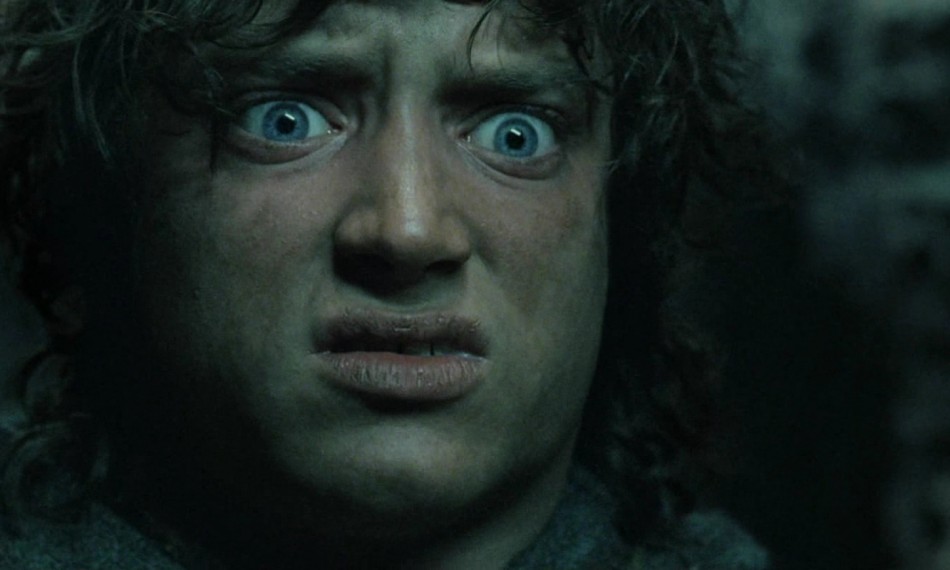
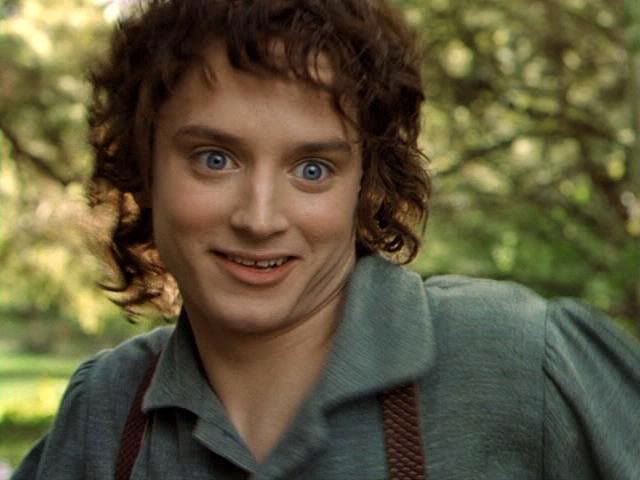
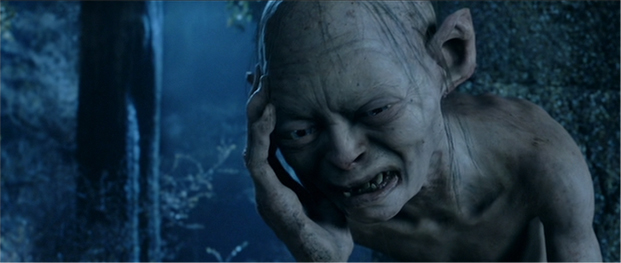
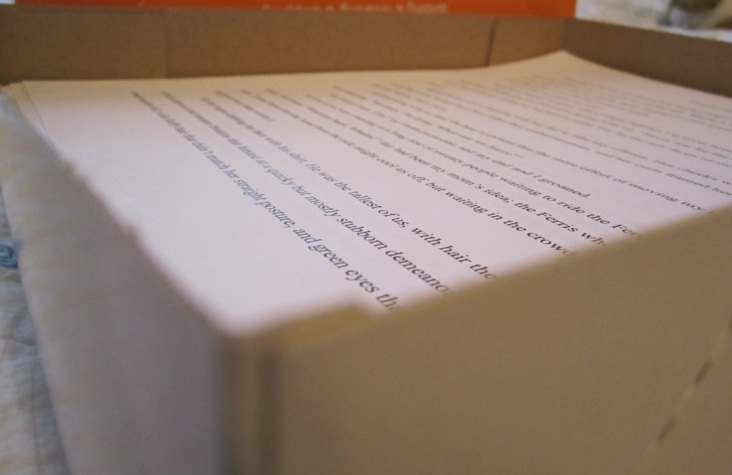
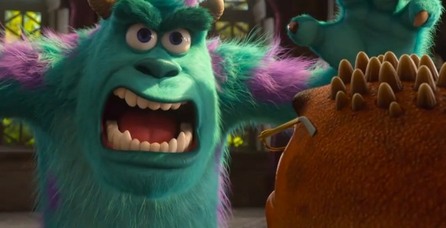
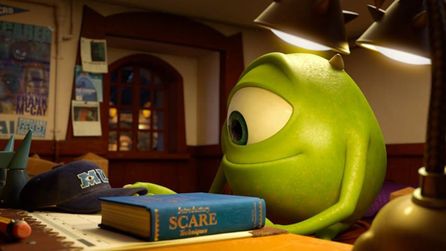
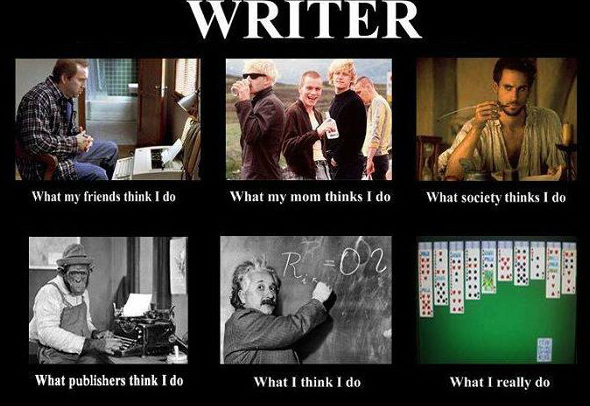
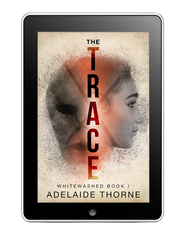
 RSS Feed
RSS Feed